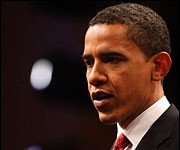President Obama’s op-ed in the Wall Street Journal this morning touted EPA’s “deregulation” of the artificial sweetener saccharin as a positive development for America. Inadvertently, the president made EPA look silly for having regulated the stuff in the first place. The use of this example was also unfortunate because EPA’s decision to deregulate had little consequence. Here’s the back story.
Beginning in the 1970s, scientists discovered that if you feed large quantities of saccharin to rats, they develop cancer. As a result, products containing saccharin were required to carry a warning label, and saccharin went on the lists of “hazardous substances” potentially subject to the Superfund toxic waste cleanup and hazardous waste regulations, as did all carcinogens. This result seemed counterintuitive and industry lobbyists working against Superfund’s renewal in 1984-87 ridiculed EPA with the question: “If I spill a truckload of Tab, do I create a Superfund site?” Of course the answer was no. EPA did not have the time, the money, or grotesque lack of judgment to even consider pursuing such idiosyncratic problems, even if they had occurred.
Meanwhile, saccharin got a lot of bad publicity, and manufacturers of saccharin hustled to perform studies showing that in the amounts consumed by humans, the sweetener was safe. But saccharin, apparently through some administrative oversight of the Bush EPA, remained on the Superfund list. In the fall of 2010, Obama’s EPA delisted it, in response to a petition from the Calorie Control Council.
The listing had no significant practical implications for anyone in industry, and the delisting was so obscure that almost no one knew about it until it came up in the president’s op-ed. If people threw out saccharin products for any reason, government officials did not come swooping down to prosecute them for violating hazardous waste laws. If you didn’t hear about the rush to hire more workers in late 2010 after the saccharin burden was lifted, that’s because there wasn’t one. Saccharin remained one of only a handful of examples where a chemical, previously thought dangerous, was later deemed not dangerous. In fact, this problem was so negligible that although John Graham, George W. Bush’s regulatory czar, used it as an example of regulation run amok, even he did not think the burden on business was great enough to bother doing anything about its presence on the EPA lists.
Moral of the story: Deregulators have their urban legends, but telling them over and over does not make them so.




